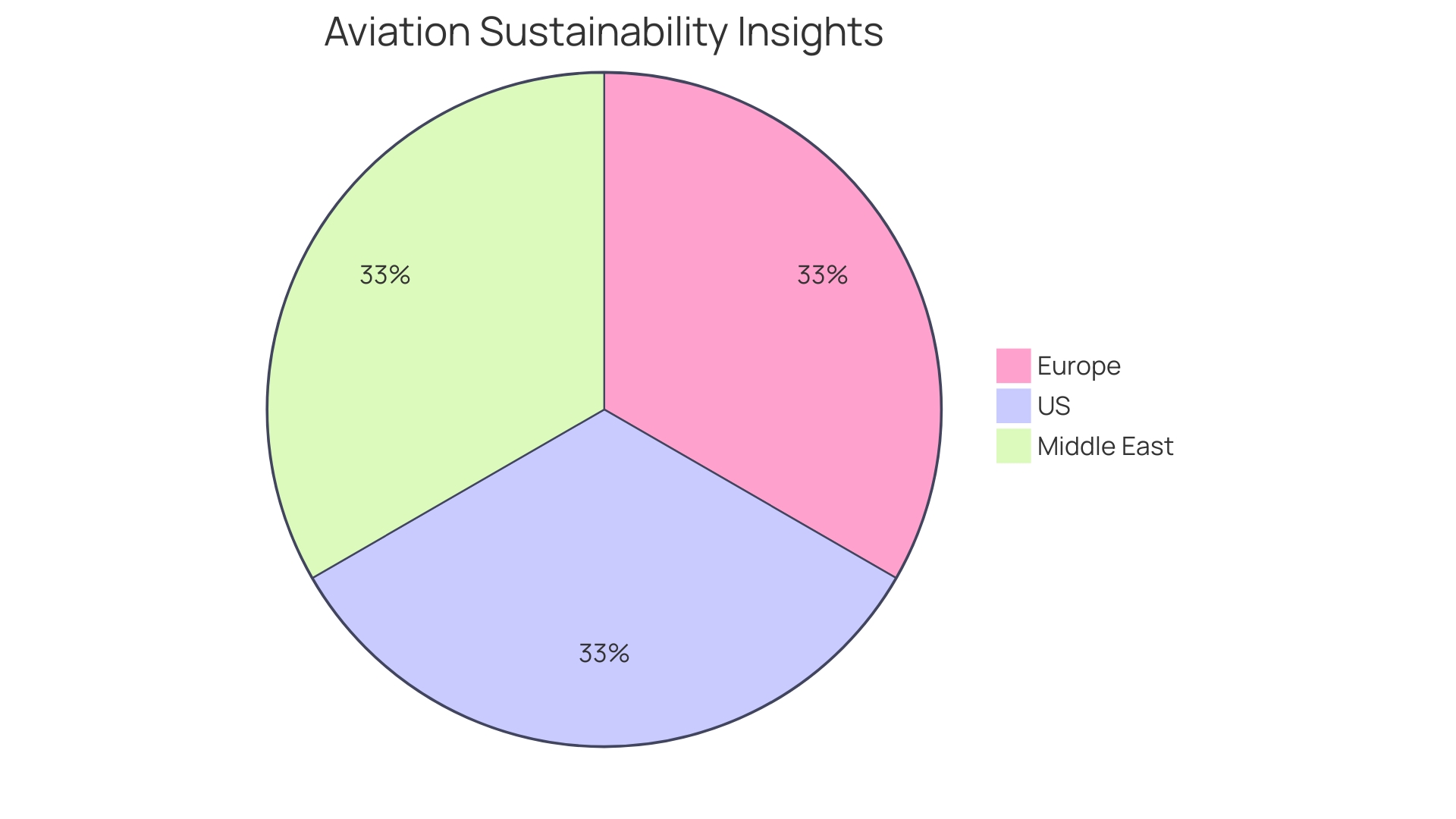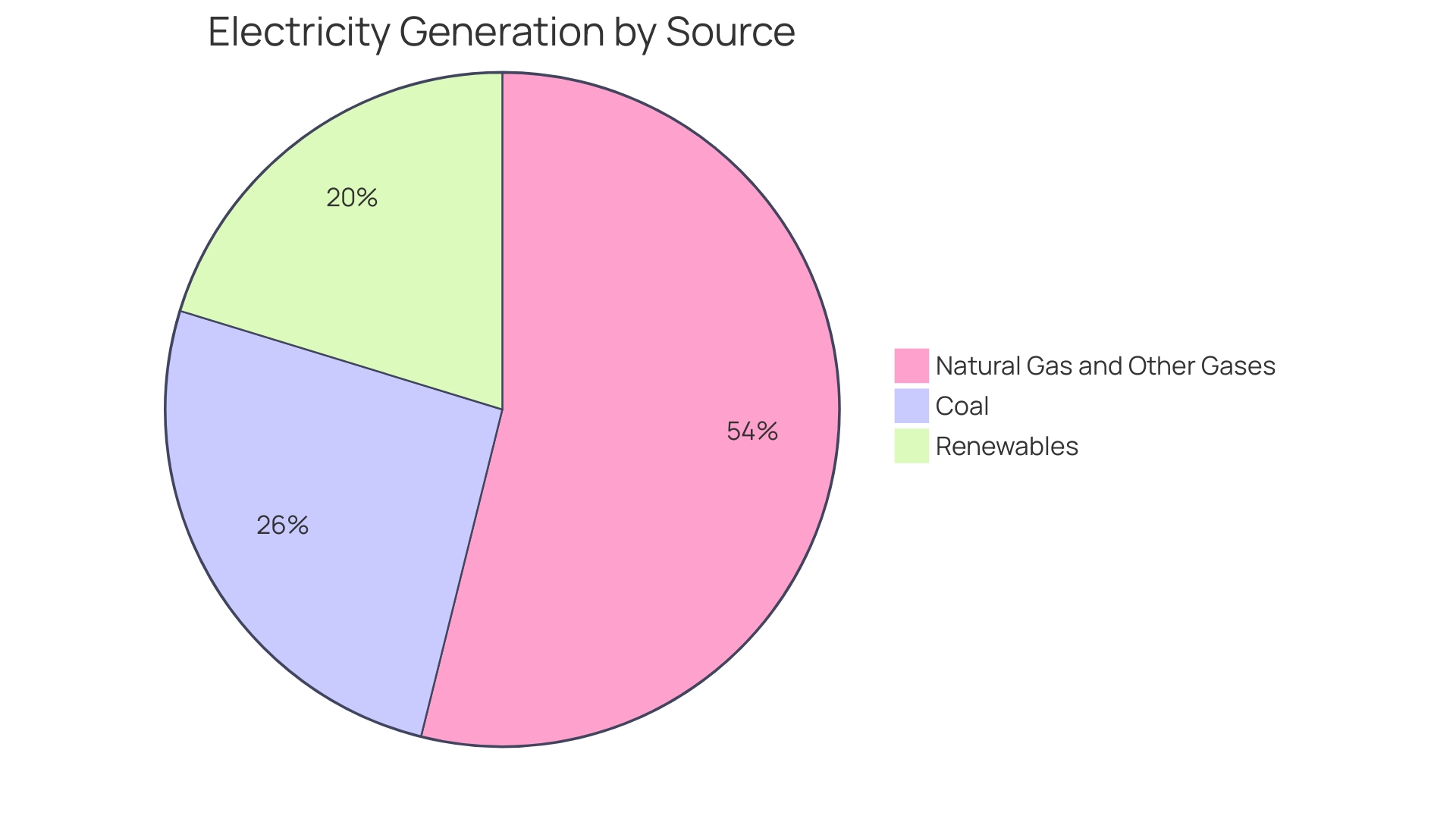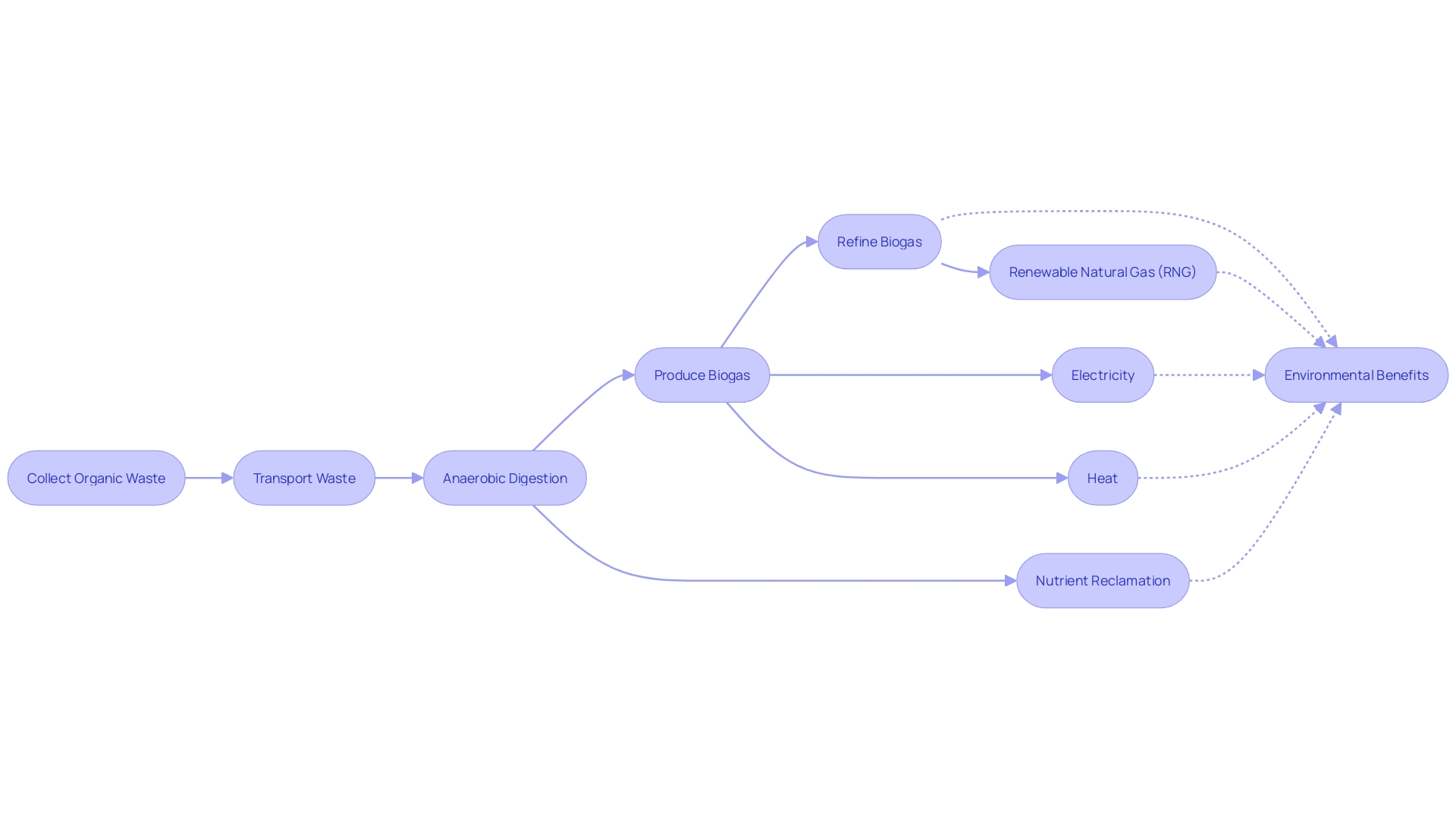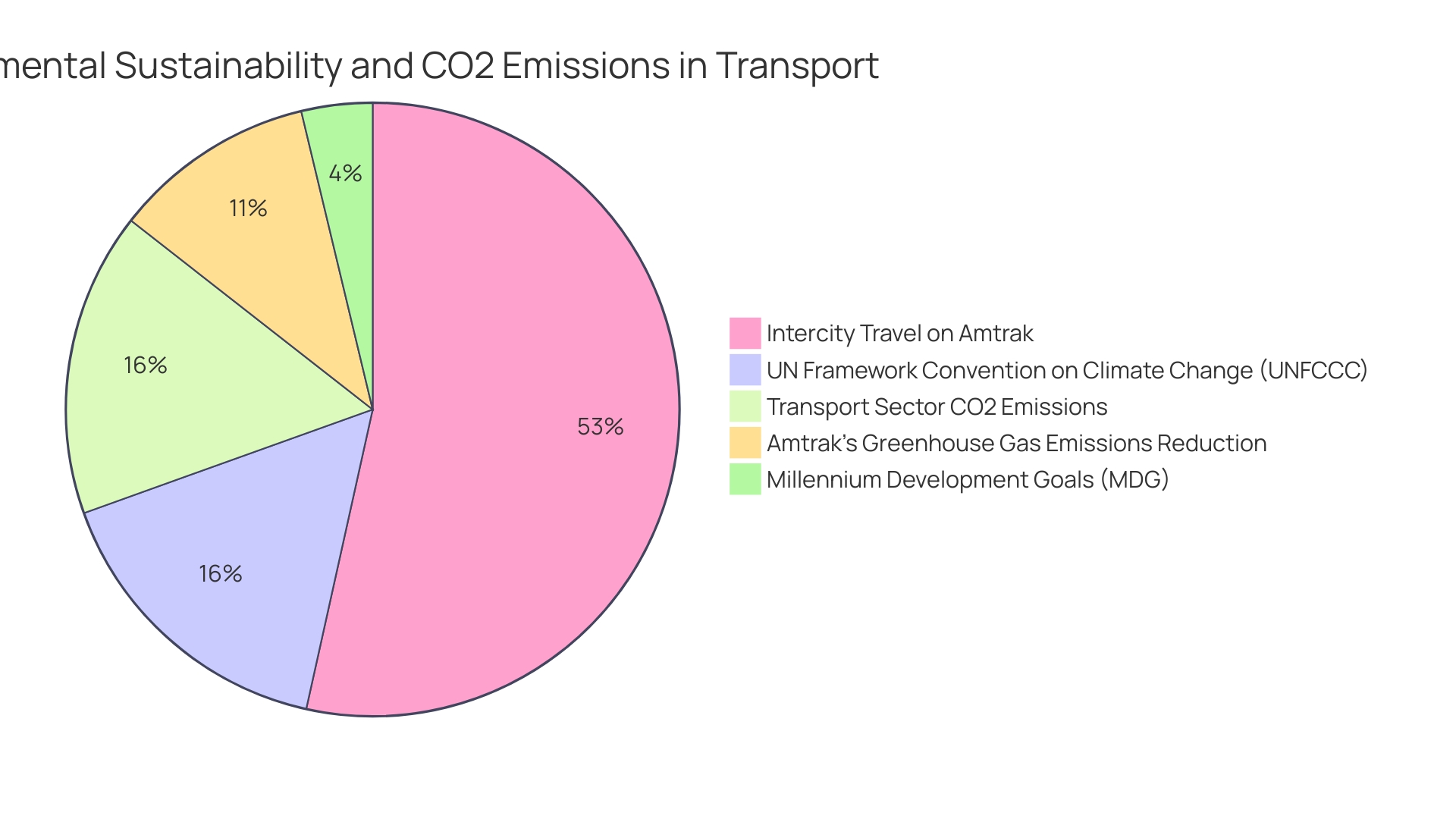Introduction
The realm of eco-friendly fuels is witnessing transformative advancements, as demonstrated by the recent historic flight operated by Virgin Atlantic. Utilizing 100% sustainable aviation fuel derived from waste cooking oils and animal fat, this pioneering journey from London to New York is a testament to the potential of renewable natural gas (RNG) and other sustainable energy sources. In this innovative landscape, biodiesel, hydrogen, and ethanol emerge as key players in reducing carbon emissions and mitigating our reliance on conventional fossil fuels.
Renewable energy, including solar and wind power, is not only becoming more affordable but is also expected to see a continual decline in costs. This trend enhances energy equity and ensures that the financial burden of energy does not force individuals to choose between basic necessities and power. Moreover, energy efficiency improvements such as weatherization, retrofitting buildings, and upgrading appliances are pivotal for maintaining healthy indoor environments, which in turn positively impact both physical and mental well-being.
Recent statistics underscore the significant role bio-based diesel plays, with over 80% produced from vegetable oils. This aligns with the European Union's commitment to increasing the production of biogas and biomethane as part of the REPowerEU plan, aimed at reducing reliance on imported fossil fuels. Germany leads in indigenous biogas production, followed by Italy and France, indicating a growing trend towards embracing sustainable practices in energy generation.
These developments showcase a collective move towards a greener, more sustainable future, with eco-friendly fuels at the forefront of this global shift.
What are Eco-Friendly Fuels?
The realm of eco-friendly fuels is witnessing transformative advancements, as demonstrated by the recent historic flight operated by Virgin Atlantic. Utilizing 100% sustainable aviation fuel derived from waste cooking oils and animal fat, this pioneering journey from London to New York is a testament to the potential of renewable natural gas (RNG) and other sustainable energy sources. In this innovative landscape, biodiesel, hydrogen, and ethanol emerge as key players in reducing carbon emissions and mitigating our reliance on conventional fossil fuels.
Renewable energy, including solar and wind power, is not only becoming more affordable but is also expected to see a continual decline in costs. This trend enhances energy equity and ensures that the financial burden of energy does not force individuals to choose between basic necessities and power. Moreover, energy efficiency improvements such as weatherization, retrofitting buildings, and upgrading appliances are pivotal for maintaining healthy indoor environments, which in turn positively impact both physical and mental well-being.
Recent statistics underscore the significant role bio-based diesel plays, with over 80% produced from vegetable oils. This aligns with the European Union's commitment to increasing the production of biogas and biomethane as part of the repower EU plan, aimed at reducing reliance on imported fossil fuels. Germany leads in indigenous biogas production, followed by Italy and France, indicating a growing trend towards embracing sustainable practices in energy generation.
These developments showcase a collective move towards a greener, more sustainable future, with eco-friendly fuels at the forefront of this global shift.
Benefits of Eco-Friendly Fuels
Embracing eco-friendly fuels not only curtails greenhouse gas emissions but also fosters a healthier environment. By broadening our energy mix and reducing reliance on exhaustible fossil fuels, these sustainable alternatives bolster energy security and drive economic growth. A prime illustration is the historic Virgin Atlantic flight that crossed the Atlantic powered solely by sustainable aviation fuel (SAF) derived from waste cooking oils and animal fat.
This pioneering event signals the potential for greener aviation, although it also highlights the existing challenges in fuel supply and the need for further technological advancements to meet emission goals.
Remarkable strides in the affordability of solar and wind power across the United States underscore the viability of renewable energy. These cost-effective solutions not only alleviate the burden of energy expenses but also contribute to a healthier living environment by improving air quality and reducing noise through energy efficiency measures. The transition to clean energy is intrinsically linked to the fundamental human right to a safe and healthy environment, addressing the disproportionate impact of air pollution on marginalized communities.
Statistics reveal a stark dependency on fossil fuels across various economic sectors, with transportation being predominantly fueled by them. However, the adoption of electric vehicles (EVs) has proven to significantly slash carbon dioxide emissions, regardless of the energy source used for recharging, painting a hopeful picture for a less carbon-intensive future.

Types of Eco-Friendly Fuels
The pursuit of sustainability in the fuel industry has led to the development and deployment of various eco-friendly energy sources. Biodiesel, predominantly sourced from vegetable oils and animal fats, offers a renewable substitute for traditional diesel, with over 80% derived from these plant-based oils. Similarly, hydrogen fuel, produced through water electrolysis, presents an energy-efficient alternative.
Ethanol, which harnesses the energy from crops like corn and sugarcane, is another widely adopted biofuel. Additionally, Renewable Natural Gas (RNG), generated from organic waste, is carving its niche as a sustainable fuel choice.
These green energy sources align with the objective to provide environmental benefits while recognizing that each energy source entails some level of environmental trade-off. Renewable energy, particularly bio-based diesel, has gained traction as evidenced by the fact that more than 80% is made from vegetable oil, with soybean and canola oil being the primary feedstocks. This push towards renewable energy has been further supported by regulations such as the Federal Renewable Fuel Standard (RFS), which mandates the blending of biofuels with gasoline and diesel.
Educational initiatives have also played a role in advancing the understanding of sustainable fuels. A case in point is a collaboration between Argonne National Laboratory and Waubonsee Community College, where students explored the life-cycle impact of Synthetic Aviation Fuels (SAFs) using the Greenhouse Gases, Regulated Emissions, and Energy Use in Technologies (GREET) model. The robust educational materials provided a comprehensive view of SAFs' potential impacts and applications, resonating with students from varied academic backgrounds.
The technology of cogeneration, although not new, has seen renewed interest given its ability to enhance fuel efficiency by concurrently generating thermal and electric energy. Looking ahead, the production of biogas from waste and energy crops is anticipated to be crucial for both electricity generation and transportation fuel, offering a renewable alternative to fossil fuels.
Lastly, nuclear power has been recognized as one of the safest and cleanest sources of electricity, contributing to the clean energy transition. This is alongside other innovative clean energy solutions such as floating solar farms, which are particularly suited to regions like Southeast Asia where land is scarce. As the global energy landscape evolves, these eco-friendly fuels and clean energy solutions are integral to a sustainable future.

Case Study: Biogas and Renewable Natural Gas (RNG)
Biogas and renewable natural gas (RNG) stand at the forefront of alternative energy solutions, transforming organic waste into a valuable resource. The process of anaerobic digestion recycles this waste from landfills, wastewater treatment plants, and dedicated digesters, yielding biogas, which after refinement becomes RNG—a versatile, conventional natural gas substitute. Denmark's early 20th-century biogas initiatives, originally aimed at sludge stabilization, have evolved into comprehensive resource recovery, producing biogas, electricity, and heat, while reclaiming nutrients and mitigating aquatic environmental impacts.
This progression exemplifies the broader transition towards sustainable energy practices aligned with global climate goals, such as those outlined in the Sustainable Development Scenario (SDS). The SDS envisions a global energy sector conforming to the Paris Agreement's temperature targets, and promoting universal access to modern energy while significantly curbing emissions. Despite the challenges, these developments signify a promising shift in the energy landscape, offering eco-friendly alternatives that contribute to energy equity, affordable energy access, and enhanced well-being through improved air quality and energy security.

Impact on Greenhouse Gas Emissions
The remarkable strides in eco-friendly fuel technologies have set the stage for a significant reduction in greenhouse gas emissions, underlining their potential as a cornerstone in the fight against climate change. Notably, Sustainable Aviation Fuels (SAFs) have emerged as a pivotal element in the aviation sector, with the industry acknowledging them as the current prime alternative to traditional jet fuels for long-haul, wide-body aircraft. Their lifecycle impact and emissions profile have been closely studied, as evidenced by the comprehensive case study conducted at Waubonsee Community College, which utilized the Greenhouse Gases, Regulated Emissions, and Energy Use in Technologies (GREET) model, revealing the substantial benefits of SAFs.
In the realm of renewable energies, the groundbreaking transatlantic flight powered exclusively by alternative fuels, operated by Virgin Atlantic, epitomizes the advancements and showcases the feasibility of greener aviation. While this flight was a singular event and not open to fare-paying passengers, it punctuates the industry's commitment to environmental stewardship and marks a historic moment in sustainable travel.
Moreover, the development of formate as a stable fuel derived from carbon dioxide is a testament to the innovative efforts to create eco-friendly alternatives. Researchers from MIT and Harvard have successfully developed a process to convert carbon dioxide into formate, which can be used as a fuel to power cells and generate electricity. The non-toxic, nonflammable nature of formate, coupled with its stability and ease of transport, underscores its potential as a reliable substitute for fossil fuels.
Across different sectors, the push for sustainable fuels is palpable. In road transport, biofuels like biodiesel and bioethanol are gaining traction, supported by governmental policies driving their production and consumption. The maritime industry is exploring sustainable methanol and ammonia as potential replacements for conventional fuels.
In residential settings, renewable natural gas is becoming interchangeable with its fossil counterpart, while the electrification of heating and cooking is expected to surge past 2030.
The energy equity movement further solidifies the role of eco-friendly fuels in ensuring a healthy and safe environment. As solar and wind energies become more cost-effective and widespread, the need for energy affordability aligns with environmental goals, promoting physical comfort and mental well-being through improved energy efficiency measures such as weatherizing and retrofitting buildings.
In summary, the integration of eco-friendly fuels into various industries not only contributes to the reduction of greenhouse gas emissions but also supports a broader movement towards sustainability, health, and energy equity. The adoption of these clean energy solutions is a testament to the collective effort to forge a sustainable and equitable future.
Integration with Existing Infrastructure
Eco-friendly fuels hold the key to reducing greenhouse gas emissions and are essential for the transition to a low- or zero-carbon energy system. However, integrating these fuels into existing infrastructure presents both challenges and opportunities. For example, the HyFlexPower project at a Smurfit Kappa paper mill in France demonstrates the feasibility of using green hydrogen produced from renewable energy to power industrial processes.
Despite the advantages, such as the potential for industrial decarbonization, there are significant hurdles like material resistance and the need for safety measures due to hydrogen's unique properties.
Additionally, the Center for Transportation and the Environment (CTE) focuses on advancing sustainable transportation technologies, further highlighting the importance of transitioning infrastructure to accommodate eco-friendly fuels. As the shipping industry grapples with aging fleets and emission regulations, and as the energy sector contends with gender disparities and regional fossil fuel dependencies, the move towards clean energy solutions like green hydrogen becomes even more pressing.
Decarbonization efforts have been underestimated in complexity and cost, with current dependencies on fossil fuels increasing. The path to a carbon-free energy supply is uncertain, with questions surrounding the role of wind, solar, and fission in electric generation, and whether fuel cells or green ammonia will power future vehicles. The financial implications are staggering, requiring a significant portion of the global economic product to be invested in this endeavor annually.
Moreover, the production of 'green' hydrogen, a versatile energy carrier, is still expensive and primarily based on fossil fuels. As we navigate the energy transition, it is clear that hydrogen will play a crucial role, particularly in industries where electrification is not feasible. To harness the full potential of hydrogen and other eco-friendly fuels, substantial modifications to existing infrastructure are necessary.
This includes addressing material considerations such as hydrogen embrittlement in pipelines, economic factors like retrofitting costs, and regulatory challenges to streamline implementation. Europe's proactive approach, illustrated by the European Hydrogen Backbone initiative, suggests that early and coordinated planning can significantly reduce barriers and accelerate the development of the necessary infrastructure.

Government Initiatives and Support
Global efforts to advance sustainable fuel usage are gaining momentum through a combination of government initiatives, academic research, and industry breakthroughs. Collaborations between educational institutions and research facilities are fostering a deeper understanding of sustainable aviation fuels (SAFs). For instance, a partnership between Argonne National Laboratory and Waubonsee Community College enabled students to analyze the life-cycle impacts of SAFs, using the comprehensive GREET model.
This integration of academia and practical research not only enhances educational experiences but also supports broader climate policy objectives.
In the realm of policy, innovative funding mechanisms are being established to support capital projects for low-emission transport solutions, such as electric ferries utilizing alternative fuels or on-board energy storage systems. These initiatives, targeted at state governments, local entities, and various organizations, are essential in reducing emissions and promoting cleaner transportation.
The Inflation Reduction Act (IRA) serves as a testament to the potential of supportive legislation, with tax incentives and policies designed to create jobs, bolster energy security, and contribute to climate change mitigation. These federal investments are expected to have wide-reaching impacts on various sectors, including green hydrogen production and carbon capture technologies. The IRA underscores the importance of transitioning towards a clean energy economy, with state-level policymakers encouraged to capitalize on available funding streams for projects that address environmental and economic concerns.
Furthermore, the aviation industry is taking proactive steps, as demonstrated by Virgin Atlantic's first transatlantic flight powered solely by alternative fuels, made possible by government funding. While challenges in fuel supply persist, such milestones showcase the feasibility of greener aviation practices.
The European Union's significant reduction in fossil fuel electricity generation also exemplifies the shift towards clean energy, with the EU experiencing the lowest levels of such generation since 2000. In the United Kingdom, Great British Energy's collaboration with the Crown Estate aims to facilitate the transition to a zero-carbon electric grid by 2030, leveraging public and private investments.
Vehicle manufacturers are also joining forces with government recommendations to offer incentives for scrapping older vehicles, contributing to a Circular Economy, and ensuring the use of cleaner and more efficient vehicles.
The World Bank's 'Reality Check' report further highlights successful climate policies from various countries, reflecting the diversity of political and economic contexts. These policies aim to achieve multiple objectives, including reducing air pollution, increasing energy security, and fostering competitiveness.
Collectively, these efforts represent a concerted push towards eco-friendly fuels and sustainable practices, with governments, educational institutions, and industries playing pivotal roles in shaping a future that prioritizes environmental stewardship.
Future of Sustainable Transportation
The trajectory of sustainable transportation is being reshaped by the integration of eco-friendly fuels, as demonstrated by groundbreaking developments in aviation. Recently, Virgin Atlantic's pioneering flight, the first to cross the Atlantic powered entirely by sustainable aviation fuel derived from waste cooking oils and animal fat, marked a significant breakthrough. The successful journey from London to New York not only showcased the viability of eco-friendly aviation but also turned the spotlight on the challenges of scaling up fuel supply to meet industry demands.
In the realm of green energy, solar and wind power have become more cost-effective than traditional energy sources across various regions of the United States, propelling the move towards energy equity and resilience. This transition is accompanied by an emphasis on energy efficiency measures, such as retrofitting buildings for improved air quality and thermal comfort, further contributing to public health and well-being.
Groundbreaking strides in transportation are also evident in the adoption of geothermal heat in residential neighborhoods, where utilities are aiding communities in transitioning from gas to renewable heat sources. Moreover, the potential of green hydrogen, generated through the electrolysis of water using renewable energy, is being explored to decarbonize multiple modes of transport, including road, rail, marine, and air, in an effort to combat climate change. With transportation accounting for a significant portion of global fossil fuel CO2 emissions, the urgency to develop alternative, sustainable fuels is clear.
Thus, the future of transportation is increasingly reliant on the development and adoption of clean energy solutions. These advancements not only represent a shift towards more sustainable practices but also underscore the importance of energy equity and the protection of human health within the broader context of environmental stewardship.

Conclusion
The realm of eco-friendly fuels is witnessing transformative advancements, with sustainable aviation fuel, biodiesel, hydrogen, and ethanol emerging as key players in reducing carbon emissions and mitigating reliance on fossil fuels. Renewable energy sources like solar and wind power are becoming more affordable, enhancing energy equity and improving indoor environments. Recent statistics highlight the significant role of bio-based diesel, aligning with the European Union's commitment to increasing biogas production.
These developments signal a collective move towards a greener, more sustainable future.
The remarkable strides in eco-friendly fuel technologies have the potential to significantly reduce greenhouse gas emissions, particularly in the aviation sector where Sustainable Aviation Fuels (SAFs) are emerging as a pivotal element. The pursuit of sustainability in the fuel industry has led to the development of biodiesel, hydrogen fuel, ethanol, and Renewable Natural Gas (RNG) as renewable alternatives. These eco-friendly energy sources contribute to reducing emissions and promoting sustainability, health, and energy equity.
Integrating eco-friendly fuels into existing infrastructure presents both challenges and opportunities. However, global efforts, including government initiatives, academic research, and industry breakthroughs, are advancing sustainable fuel usage. Collaborations between educational institutions and research facilities enhance understanding and support climate policy objectives.
Funding mechanisms and supportive legislation promote low-emission transport solutions and clean energy economies.
The trajectory of sustainable transportation is being reshaped by the integration of eco-friendly fuels, exemplified by groundbreaking developments in aviation. The success of flights powered entirely by sustainable aviation fuel demonstrates the viability of eco-friendly aviation. Solar and wind power's affordability and the adoption of geothermal heat and green hydrogen in transportation contribute to energy equity and decarbonization efforts.
In conclusion, the integration of eco-friendly fuels into various industries drives the reduction of greenhouse gas emissions and supports the transition to a sustainable future. Renewable energy sources, advancements in fuel technologies, and collaborative efforts across sectors pave the way for a greener, more equitable, and resilient energy landscape. The future of transportation relies on the continued development and adoption of clean energy solutions, emphasizing sustainability, energy equity, and environmental stewardship.




